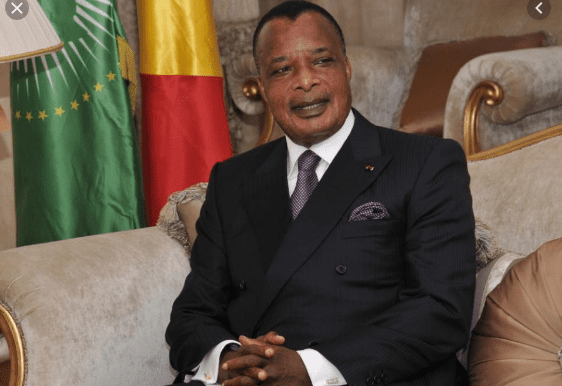In the Republic of Congo, where the average age is 19, an overwhelmingly large section of the population has only known Denis Sassou Nguesso as the country’s president.
At 77 years of age, President Sassou Nguesso has already spent 36 years in power cumulatively since he came to power in 1977 and lost power briefly through democratic elections.
He made a successful comeback and has not looked back since.
The man who is nicknamed by his African peers as the “Emperor” has clearly not quenched his thirst for power since he sought and won a fourth term after polling 88.57 percent of Sunday’s vote.
Six candidates stood in his way namely, Guy-Brice Parfait Kolélas, Mathias Dzon, Joseph Kignoumbi Kia Mboungou, Albert Oniangué, Anguios Nganguia Engambé and Dave Uphrem Mafoula.
Thanks to a constitutional amendment in 2015, Sassou Nguesso is set to rule the former French colony until 2031.
In a video posted on Facebook, best-selling writer Alain Mabanckou made an indictment: “The observation I made about the politics of my country is unfortunately sad. Same people, same stories, the youth shackled, the freedom of the press non-existent … These great projects were never started.
However, the author of “Lumières de Pointe-Noire” or “Petit piment” urged his fellow citizens to exercise their civic duty by “voting in calm and dignity because Congo is stronger than people seeking power. Congo will remain, men will pass. Posterity will recognize your democratic gesture and will remember those who corrupted it.
In 2016, the re-election in the first round of the candidate of the Congolese Party of Labour (PCT) was hotly contested.
In any case, Congo’s bishops have made a strong plea for “alternative power (so that it) becomes an intangible and immutable rule.
In addition, the clerics called for “a single renewable term of office”.
The Congolese paradox
Congo is 342,000 km² in size and has a population of 5 million.
Oil, the country’s primary natural resource, accounts for 55 percent of Gross Domestic Product (GDP), 85 percent of exports and 80 percent of state budget revenues.
But since 2014, this nation has been facing a severe economic crisis that required the assistance of the International Monetary Fund (IMF).
Called “otchouembé”, a traditional muscular wrestler in the Mbochi language, Sassou Nguesso’s ethnicity, the former military officer, born in 1943 in Edou (North), owes a debt of gratitude to the Bretton Woods institution, which injected hundreds of millions of dollars into his country under the Extended Credit Facility (ECF).
The objective, according to the IMF, is to help Congo revive its economy. In 2019, the debt of this small Central African country was estimated at 120 percent of its GDP.
According to a recent African Economic Outlook report, “the social situation (in Congo) is marked by persistent poverty (40.9 percent) and income inequality (with a Gini coefficient of 0.46 in 2011).
In addition, the local workforce is characterized by a mismatch between training and the needs of the labor market, which is explained by weaknesses in the provision of technical and vocational education.
Despite his disastrous record in the eyes of some political actors, the strongman of Brazzaville does not tolerate dissent.
General Jean-Marie Mokoko, a former adviser to the all-powerful president, and André Okombi Salissa, ex minister and unsuccessful candidate in the 2016 presidential election, have learned this the hard way.
Both of Denis Sassou’s opponents were sentenced to 20 years in prison for “undermining state security”.
Mokoko, whose health had deteriorated while he languished in solitary confinement, was evacuated in July 2020 to a military hospital in Ankara, Turkey.
ID/te/lb/as/APA


